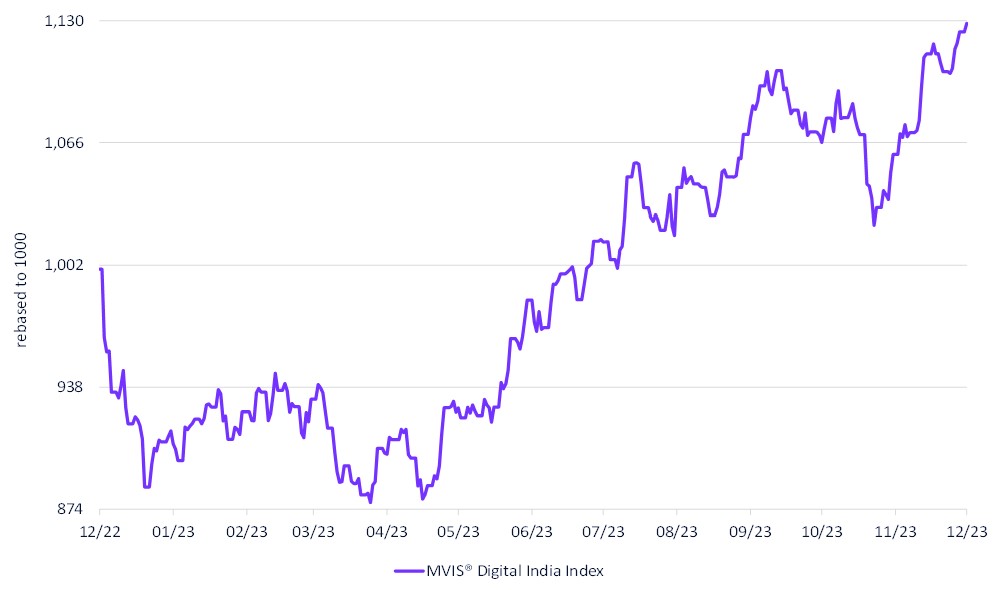Over the past decade, India has experienced a remarkable surge in the FinTech landscape, marked by substantial growth in pivotal sectors such as Payments, Digital Lending, Insurance, and WealthTech. This has positioned India as the third-largest fintech ecosystem globally1. According to a report from the G20 Global Partnership for Financial Inclusion (GPFI), India not only met but surpassed its financial inclusion target, achieving an 80% inclusion rate in just six years, a remarkable accomplishment that outpaced the initial projection by 41 years2.
This noteworthy achievement can be attributed to the concerted efforts of the government, which has implemented various initiatives to foster financial inclusion. The government's commitment to financial accessibility is evident in initiatives like the Pradhan Mantri Jan Dhan Yojana (PMJDY), a flagship program aimed at ensuring every household has access to a bank account. The implementation of the Unified Payments Interface (UPI) helmed by NPCI (National Payments Corporation of India) has played a pivotal role in facilitating seamless digital transactions, contributing significantly to the growth of the FinTech ecosystem.
Alongside, the vibrant FinTech ecosystem has led to creation of successful digital payment companies who have launched wallets and payment platforms which are widely used (Google Pay, Paytm, Phone Pe). Simultaneously, the existing banks have upgraded to facilitate online, real-time and 24*7 banking services.
India’s FinTech story by the numbers1:
| India’s digital payment Rank by total transactions | 1st |
| Total UPI transactions | 10 billion [Aug-2023], with 50% YoY growth. |
| UPI Transaction Fee | Zero |
| Value of all UPI transactions in 2023 | USD 900 billion |
| Daily # UPI transactions | 1 billion by 2026 (expected) |
| Jan Dhan Yogna account holders (Financial Inclusion indicator) | 509 million beneficiaries |
| Aadhar card holders (required for opening bank account) | 1.3 billion beneficiaries. 99% of India’s population |
All these numbers are a strong testament to India’s rising fintech and digital market. (Also, do refer to my article earlier on India’s over development story: https://www.marketvector.com/insights/mvis-onehundred/india-s-economy-striking-the-right-chords)
The MVIS® Digital India Index (MVDIND), a modified market cap index ensures a pure-play exposure to the digital economy space of India was up 22% in YTD.
MVIS® Digital India Index
12/04/2022-12/04/2023

Source: MarketVector. Data as of December 4, 2023.
Source1 https://www.investindia.gov.in/sector/bfsi-FinTech-financial-services
Source2 https://fintech.global/2023/09/11/how-india-hit-its-financial-inclusion-goal-41-years-early/
Kinjal Shukla is the Index Researcher and Data Engineer at MarketVector. She is responsible for the design and development of MarketVector indexes and for creating data infographics. Kinjal has cleared FRM Level 1 having come from a risk profile in Barclays, India. She has a degree in a Master of Science in Financial Engineering from Stevens Institute of Technology, USA, and an MBA-Tech degree from NMIMS-MPSTME University, India.
For informational and advertising purposes only. The views and opinions expressed are those of the authors but not necessarily those of MarketVector Indexes GmbH. Opinions are current as of the publication date and are subject to change with market conditions. Certain statements contained herein may constitute projections, forecasts, and other forward-looking statements, that do not reflect actual results. It is not possible to invest directly in an index. Exposure to an asset class represented by an index is available through investable instruments based on that index. MarketVector Indexes GmbH does not sponsor, endorse, sell, promote, or manage any investment fund or other investment vehicle that is offered by third parties and that seeks to provide an investment return based on the performance of any index. The inclusion of a security within an index is not a recommendation by MarketVector Indexes GmbH to buy, sell, or hold such security, nor is it considered to be investment advice.




